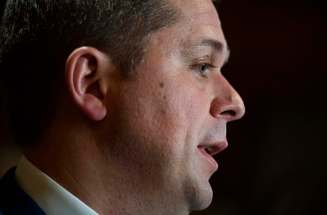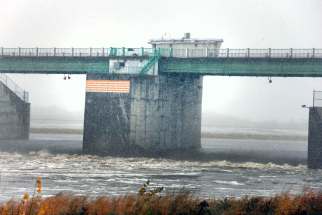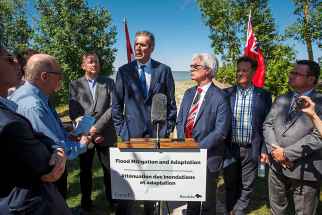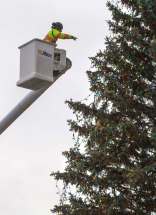Province’s flood-channel plan hits regulatory snag
Read this article for free:
or
Already have an account? Log in here »
To continue reading, please subscribe:
Monthly Digital Subscription
$0 for the first 4 weeks*
- Enjoy unlimited reading on winnipegfreepress.com
- Read the E-Edition, our digital replica newspaper
- Access News Break, our award-winning app
- Play interactive puzzles
*No charge for 4 weeks then price increases to the regular rate of $19.00 plus GST every four weeks. Offer available to new and qualified returning subscribers only. Cancel any time.
Monthly Digital Subscription
$4.75/week*
- Enjoy unlimited reading on winnipegfreepress.com
- Read the E-Edition, our digital replica newspaper
- Access News Break, our award-winning app
- Play interactive puzzles
*Billed as $19 plus GST every four weeks. Cancel any time.
To continue reading, please subscribe:
Add Free Press access to your Brandon Sun subscription for only an additional
$1 for the first 4 weeks*
*Your next subscription payment will increase by $1.00 and you will be charged $16.99 plus GST for four weeks. After four weeks, your payment will increase to $23.99 plus GST every four weeks.
Read unlimited articles for free today:
or
Already have an account? Log in here »
Hey there, time traveller!
This article was published 07/11/2019 (2228 days ago), so information in it may no longer be current.
OTTAWA — Federal regulators have hit the brakes on Premier Brian Pallister’s signature infrastructure project, arguing the province botched its submissions on the Interlake flood-channel outlets.
The Lake Manitoba-Lake St. Martin outlet project is now on hold, due to hundreds of “conformity gaps” on the part of Manitoba Infrastructure.
Pallister shot back that Ottawa’s regulatory process “is becoming more convoluted” under the federal Liberals.
The Impact Assessment Agency of Canada issued a 27-page list of problems, ranging from small tweaks such as an inaccurate table of contents and not providing technical reports being referenced, to deeper issues such as a water-management plan that is too vague.
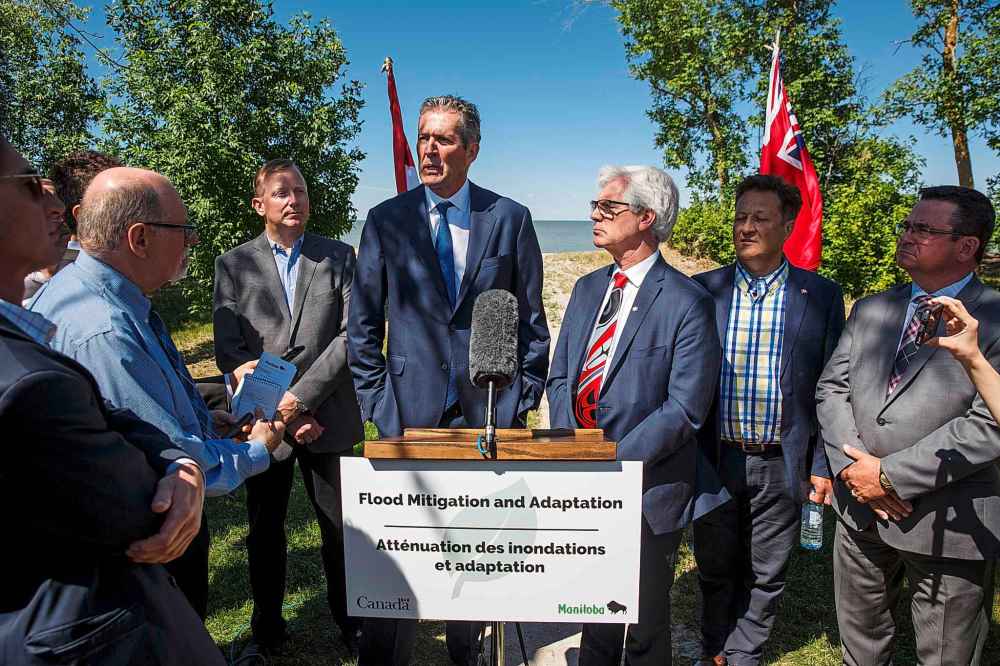
The IAAC is particularly troubled by a lack of “information on predicted environmental and social costs and benefits of the project among potentially affected communities.”
It says Manitoba has failed to detail its efforts reaching out to Indigenous communities, making it impossible for them to determine if Pallister’s so-called “gold-standard” consultations have adequately included treaty rights and traditional knowledge.
Infrastructure Minister Ron Schuler was not available Thursday for an interview. His department wouldn’t speak to errors or omissions, instead saying the “iterative process” means Ottawa “can request technical clarification,” some of which it has since provided, while it works on a longer response.
“Our government remains committed to fulfilling its duty for consultation,” a spokeswoman wrote.
The Oct. 22 report was posted online two days later, and detailed in a Thursday press release from the Manitoba Métis Federation, hours before Pallister headed to Ottawa to meet with Prime Minister Justin Trudeau on numerous issues, including the outlet channels.
“I guess what I’m trying to say as politely as possible is that the federal government keeps changing the yardsticks so that after three and a half years we’ve got about two months of actual consultation we can count.”
– Manitoba Premier Brian Pallister
Pallister had asked the federal Liberals to streamline consultations on the billion-dollar project, warning that it’s needed to avoid another disastrous flood in the Interlake. He said Manitoba has had “approaching 600 meetings” with Indigenous groups over the last three years.
“Métis, Indigenous consultations and community consultations are going to continue until such time as we’re able to satisfy the requirements that the federal government’s environmental process has now imposed on us, which were not there at the outset,” the premier told reporters Thursday.
“I guess what I’m trying to say as politely as possible is that the federal government keeps changing the yardsticks so that after three and a half years we’ve got about two months of actual consultation we can count. Because the consultations and the meetings don’t count unless you’ve satisfied all of the federal requirements.”
However, First Nations and Métis leaders have asked Ottawa to demand clarity on issues such as the impact on traditional practices and the impact of nutrients ferrying across the outlet on fishing stocks, which are the lifeblood of numerous communities.
“Pallister is forcing us to fight him.”
– MMF President David Chartrand
The MMF in particular has been vocal of the province’s handling of the project, arguing it would be under construction already if it followed federal rules.
“They’re not even following the requests that they could easily accomplish by answering the questions (Ottawa) is posing,” MMF President David Chartrand said Thursday.
He blamed any public costs from delay on the premier.
“Pallister is forcing us to fight him,” he said. “That’s not the way this country can be going forward; that’s what the courts have ruled.”
Pallister has chafed at the federal government including communities as far as 500 kilometres downstream from the project in its review.
“The requirements are made onerous, it seems, with each passing week,” the premier said Thursday.
Once the province submits an updated Environmental Impact Statement, the IAAC has 30 days to review it and decide if it’s sufficient for the project to proceed.
— with files from Larry Kusch
dylan.robertson@freepress.mb.ca
Flood-outlet channels conformity review



